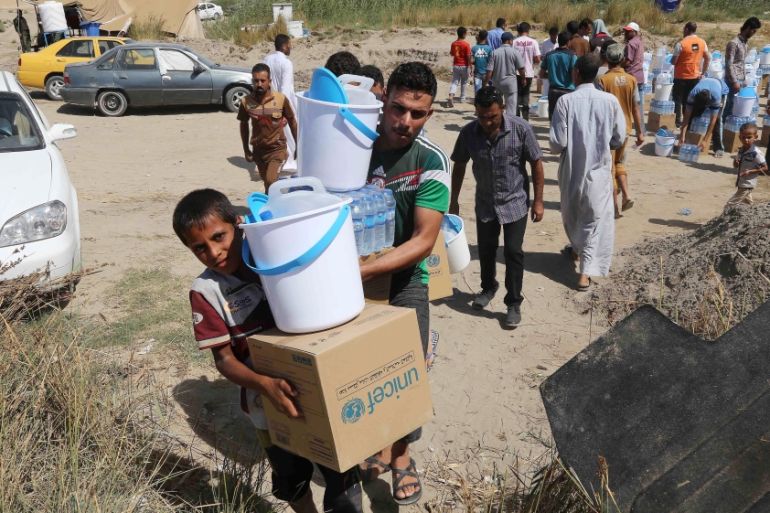UN launches campaign to tackle Iraq’s cholera outbreak
UNICEF and WHO collaborate in major bid to contain disease that risks spiralling in regional epidemic.

The United Nations has launched a major campaign to tackle a deadly cholera outbreak in Iraq, as infections reported in neighbouring Syria, Kuwait and Bahrain sparked fears that it could spiral into a regional epidemic, UNICEF’s Iraq director, Peter Hawkins, told Al Jazeera.
Hawkins said in an interview on Friday that the bacterial disease, which can cause fatalities from dehydration and kidney failure if left untreated, has infected more than 2,200 people across Iraq since mid-September.
Keep reading
list of 4 itemsDeadly Sahel heatwave caused by ‘human-induced’ climate change: Study
Woman, seeking loan, wheels corpse into Brazilian bank
UK set to ban tobacco sales for a ‘smoke-free’ generation. Will it work?
“There have been 2,217 confirmed cases throughout 15 of 18 governorates in Iraq,” he said, adding that the outbreak has been “exacerbated by the fact that much of the country’s infrastructure has all but collapsed”.
At least six people have died from the disease, which spreads mainly through contaminated water and poor sanitation, in the country since September 15.
Hawkins also said that the outbreak has been worsened over the last few days by excessive rainfall that triggered flooding in the capital Baghdad and governorates around it.
Containment measures
The severity of the cholera crisis, in which one-in-five confirmed cases is among children, has prompted the UN’s children agency, UNICEF, and the World Health Organization (WHO) to step up and speed up efforts to contain the outbreak in a collaboration with Iraqi authorities.
“We are working to ensure thousands of people have access to clean water,” Hawkins said.

“We have also made available 820,000 oral rehydration salts to help children recover from the disease.”
Hawkins also said that the outbreak has been intensified by the ongoing pilgrimage for the Shia commemoration of Ashoura, which sees millions travel to Iraqi cities with holy sites, including Karbala.
“We are talking with imams [religious leaders] to ensure people take measures to prevent it [cholera] from spreading,” he said.
UNICEF is also concerned that cholera could spread further as millions of pilgrims are due to visit Iraq in December for Arbaeen, a religious ritual marking the end of an annual mourning period for the Prophet Muhammad’s grandson, Hussein.
The cholera outbreak, which was first detected in crowded refugee camps in Abu Ghraib, has been blamed on the country’s outdated water and sewage systems, compounded by years of war and neglect by government officials.